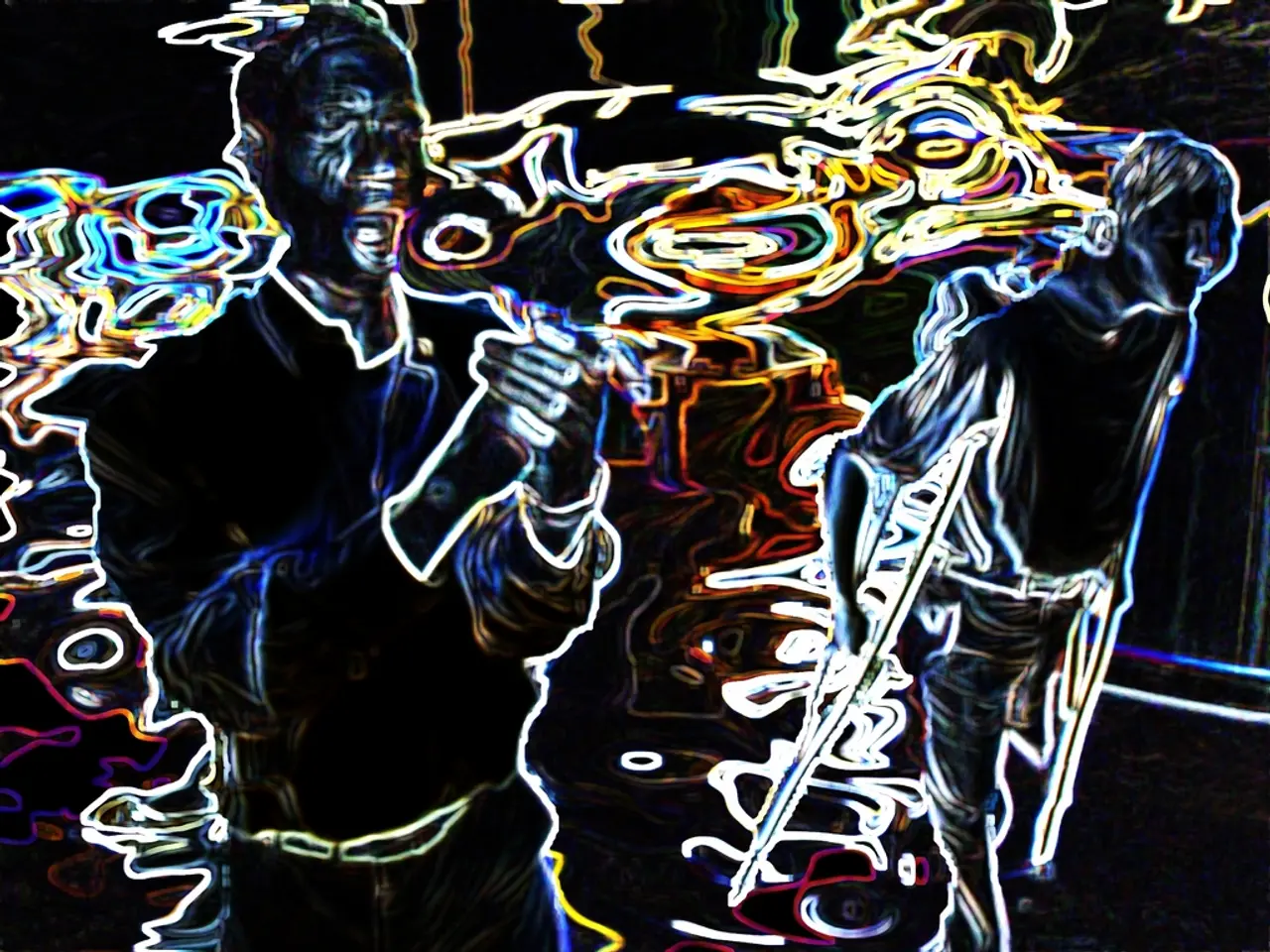Identifying Mental Processes in Adolescents - Uncovering Mental Biases in Young Adults
Cognitive distortions can significantly impact a teenager's mental health, academic performance, and personal relationships. These distortions, such as catastrophizing, overgeneralization, and "should" statements, can exert harm across various aspects of their lives. However, there are effective strategies to help teens cope with these distortions and related mental health issues.
Recognizing and Challenging Cognitive Distortions
One of the key approaches involves teaching teens to recognize common cognitive distortions. Through real-life scenarios, they learn to challenge these thoughts with evidence-based reasoning. For instance, reframing "I failed a test = I'm a failure" to "I failed a test, but it doesn't define my abilities or worth."
Cognitive Flexibility and Emotional Regulation
Thought Distortion Detective exercises, Emotion Mapping, and Trigger Tracking are other strategies that help teens build cognitive flexibility, emotional awareness, and resilience. These exercises empower teens to identify distorted thoughts, reduce emotional reactivity, and manage emotional challenges proactively.
Digital Tools and Support Groups
Using digital tools and group CBT formats, such as apps for mood tracking, journaling, and online peer support groups, can encourage engagement in therapeutic activities and reduce isolation. These tools provide a safe space for teens to express their feelings and learn from others going through similar experiences.
Complementary Therapeutic Modalities
Integrating other therapeutic modalities, like EMDR, art, music, or movement therapy, can complement CBT and tailor interventions to individual preferences and needs. These modalities offer alternative ways for teens to express themselves and process their emotions.
Parental and Caregiver Involvement
Parents, educators, and caregivers play a crucial role in recognizing the signs of cognitive distortions in teens. By observing changes in behaviour, academic performance, and communication patterns, they can provide effective guidance and intervention. Techniques such as promoting dialogue that challenges black-and-white thinking and using emotion rating scales can help foster open conversations about mental health.
These strategies, when used collectively, can help mitigate the impact of cognitive distortions on mental health conditions such as depression and anxiety. It's important to remember that every teen is unique, and the approach to addressing cognitive distortions should be tailored to their individual needs and preferences.
[1] Psychology Today. (2021). Cognitive Behavioral Therapy for Teens: What You Need to Know. Retrieved from https://www.psychologytoday.com/us/blog/the-cognitive-behavioral-therapist/202102/cognitive-behavioral-therapy-teens-what-you-need-know
[2] American Psychological Association. (n.d.). Cognitive Behavioral Therapy (CBT). Retrieved from https://www.apa.org/topics/cognitive-behavioral-therapy
[3] National Institute of Mental Health. (n.d.). Cognitive Behavioral Therapy (CBT). Retrieved from https://www.nimh.nih.gov/health/topics/cognitive-behavioral-therapy-cbt/index.shtml
[4] Mayo Clinic. (2020). Cognitive Behavioral Therapy (CBT). Retrieved from https://www.mayoclinic.org/tests-procedures/cognitive-behavioral-therapy/about/pac-20394894
[5] Child Mind Institute. (n.d.). Cognitive Behavioral Therapy (CBT) for Kids. Retrieved from https://childmind.org/article/cognitive-behavioral-therapy-cbt-for-kids/
- Recognizing and challenging cognitive distortions forms a significant component in helping teens cope with the impact on their mental health, academic performance, and personal relationships.
- By employing Thought Distortion Detective exercises, Emotion Mapping, and Trigger Tracking, teens can build cognitive flexibility, emotional awareness, and resilience, essential for managing emotional challenges proactively.
- Digital tools and online support groups can encourage engagement in therapeutic activities like mood tracking, journaling, and peer interactions, reducing feelings of isolation.
- Integrating other therapeutic modalities, such as EMDR, art, music, or movement therapy, can complement CBT and cater to individual preferences and needs, offering alternative ways for teens to express themselves and process emotions.
- Parental, educator, and caregiver involvement is crucial in recognizing the signs of cognitive distortions and providing effective guidance and interventions, using methods like dialogue that challenges black-and-white thinking.
- Collectively, these strategies can help mitigate the impact of cognitive distortions on mental health conditions like depression and anxiety, promoting emotional well-being and mental health.
- Personal growth, self-esteem, motivation, and mindfulness are encouraged through these therapeutic interventions, contributing to the overall health-and-wellness and mental health of teens struggling with cognitive distortions.





